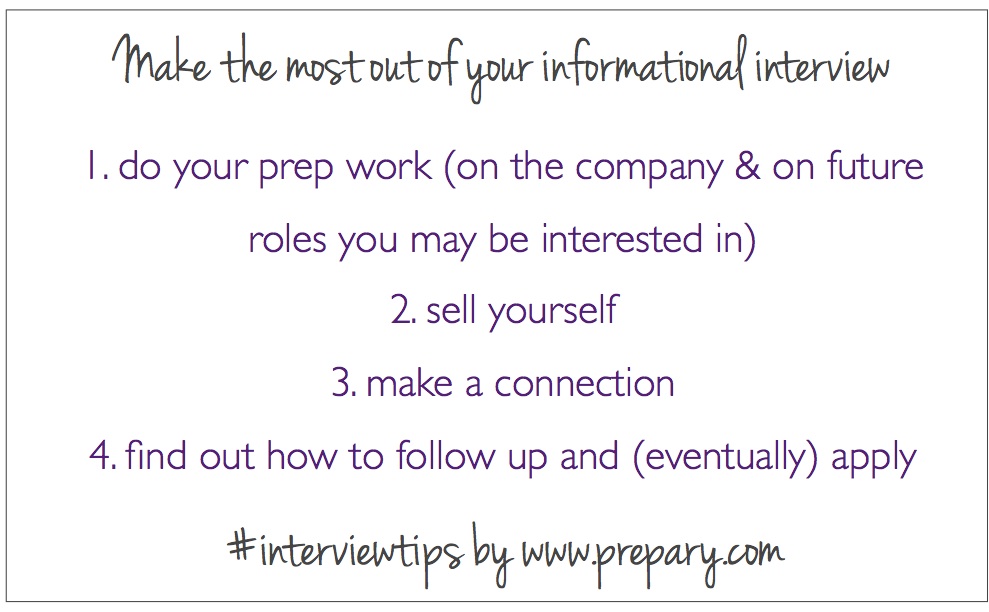Setting up informational interviews is something we’re encouraged to do during our job search. What is an informational interview, really? It’s time you will spend with someone that can range from a casual conversation to a full blown interview but without a specific job in mind. Certainly, they are a great way to get in front of someone at the company even if there are no current jobs that seem like a good fit, but they are only helpful if you make the most out of them.
1. Have a point of view about the types of jobs you’d be interested in doing at the company and why you want to work there:
Not having a perspective on these things is the #1 mistake I see people make time and time again in informational interviews. Do your research before you go in. It’s important to be able to speak to why you want to work at that company (in a genuine and informed way) and also be able to speak to what types of roles you might be interested in. It’s completely okay to open up the conversation and ask the person you’re speaking with about their opinion on what types of roles could be a fit, but have a perspective!
2. Find out what makes an ideal candidate for those types of roles:
This is one of the main pieces of information you should gather in an informational interview. Your interviewer is likely to have a great perspective on what makes an ideal candidate for the company and some of the specific roles you mentioned (though it depends on who you are talking to). This is your chance to get insider knowledge on what skills and qualities are being looked for… and then you can go out and develop them while you are waiting for a job to open.
3. Sell yourself:
I guess this one is obvious, but you must make a positive impression on your interviewer. This way when a job opens up, they can look back at their notes and say, “yup, this person was amazing, let’s bring them back in.” An informational interview is not always helpful – if you don’t impress your interviewer, the feedback from that meeting may preclude you from being a candidate for future roles.
4. Make a strong connection with the interviewer:
In addition to selling yourself, the more you can “connect” with the interviewer, the better. Ask about their background, find things in common, etc. You have a chance to make an ally for yourself within a company you are dying to work at. That should be one of the main goals of the time you spend together.
5. Find out how to get into the company:
This is the more logistical part but it’s critical information. Find out the preferred method of checking in, staying in touch, and applying when the role(s) become available. Your interviewer may even point you to a different contact (potentially someone on the recruiting team) who you will want to connect to.
If you take these steps, you will be guaranteed to have a more productive and beneficial informational interview. Make the most out of that time and it will pay off in the future!






